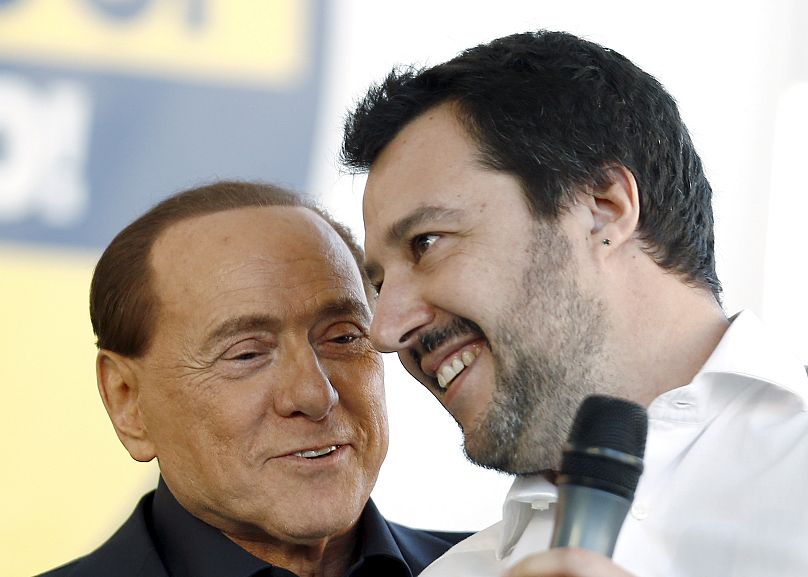What is behind Salvini's refusal to celebrate Italy's Liberation day?
Joint Deputy Prime Minister and leader of the anti-immigration League Party, Matteo Salvini, said he would not attend Italy's Liberation day, that marks the triumph of Italy’s resistance against the Nazi occupation.
Instead, he chose to visit the Sicilian city of Corleone, to support the police in their fight against the mafia.
In a Facebook live, Salvini said the following: “On April 25 there will be parades, partisans, anti-partisans, fascists, communists, reds, blacks, and greens, blues, yellows, reds. We are in 2019, I am not interested in the fascist-communist derby, I am interested in the future and freeing the country from mafia.”
Salvini asserted he wanted to support the police rather than march on Italy's Liberation day on April 10th.
He said: "On April 25 I won't be marching here or there [...]. I'm going to Corleone to support the police force in the heart of Sicily".
Salvini's decision has split the Italian government and led to accusations he contributing to the 'normalisation of fascism' across Europe.
The Liberation day controversy
Leader of the Five Star Movement, and Deputy Prime Minister Luigi Di Maio dissociated himself from Salvini's decision.
He attacked him on Facebook, criticising him for denying the importance of the commemoration.
He wrote: “I read that someone today even went so far as to deny April 25, the day of Liberation. I find it concerning. It's not by shrugging and puffing that this country will grow. On the contrary, we grow if we give strength to certain values, to our history. Because with indifference, one does not go anywhere.”
He goes on to criticise Salvini's ideas and measures, such as the restoration of compulsory military service and his conservative beliefs on abortion and women's rights. He says these are not Italy's values, and that Italy is "returning to the Middle Ages".
“It is not a question of right or left, which is something I often hear, but rather, it's a question of believing in this country. To believe in Italy and to respect it. And whoever believes in it, like me, will remember it on April 25!"
On Thursday, the Italian blog Valigia Blu published an article about recent debates surrounding Italy's Liberation day. The post shows some local authorities (supported by centre-right parties, one being the neo-fascist party CasaPound) made the decision not to celebrate this day and to deny permission to the National Association of Italian Partisans (ANPI), an anti-fascist association, to sing their anthem Bella Ciao.
Matteo Pascoletti, the author of this article, writes: "[Italy's] Liberation day reminds us that a time can come when horror becomes normality [...], and in those times, not choosing where you stand means you've already decided.”
Is Salvini emulating Berlusconi?
Salvini is not the first PM to miss Italy's Liberation day. Before 2009, Silvio Berlusconi never attended public commemorations either.
Andrea Mammone, is a visiting fellow in the Robert Schuman Centre at the European University Institute and historian of modern Europe at Royal Holloway, University of London.
He says Berlusconi was the first Italian political leader of a ruling coalition who had no interest in promoting anti-fascism values.
"This was for many reasons, including the fact that Berlusconi was using an anti-communist propaganda and because he'd been leading Italy when he was in power with a neo-fascist force: the Italian Social Movement.”
Normalising fascism in Europe
Mammone believes that, on a broader level, this will not directly impact EU politics as fascism and nationalism across Europe are already spreading.
“Often, anti-fascism has a meaning when fascism is around. With the fall of the Berlin wall, many people believed that it was in some way the end of history: liberalism won, democracy won, there were no authoritarian threats around. At the beginning, this looked like it because democracy was expanding. But in reality, some fascist-like ideas were still there and today, we see shifts in democratic values in Hungary and Poland as well.”
“Anti-fascism disappeared from the EU framework and this is one of the problems. In my personal view, EU leaders are culturally unprepared to challenge far-right forces like the League Party,” she adds.












